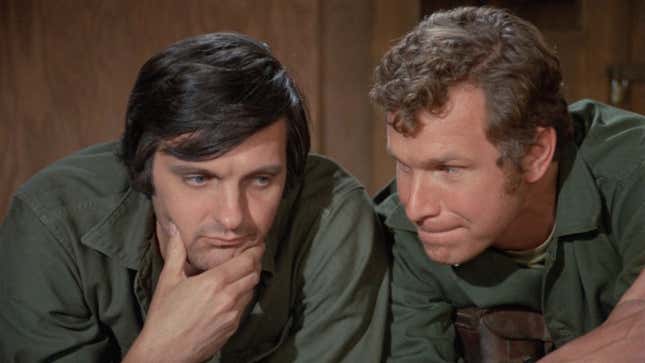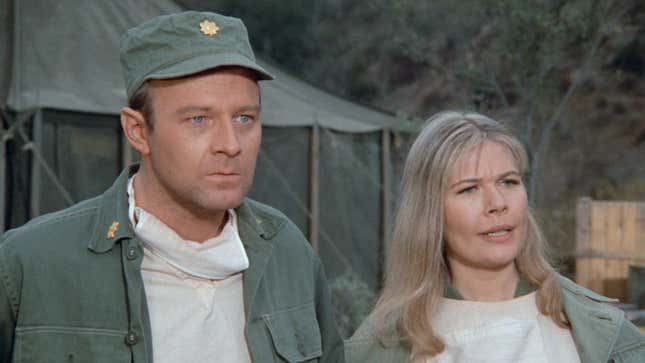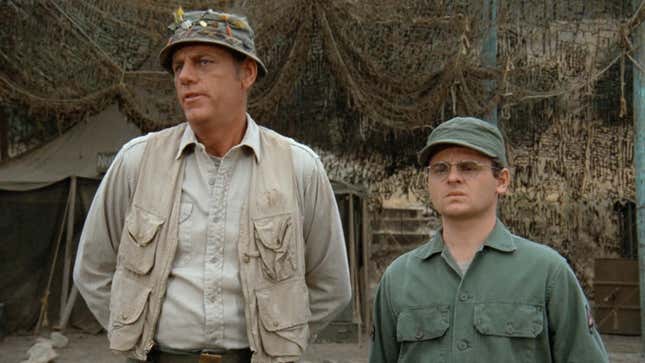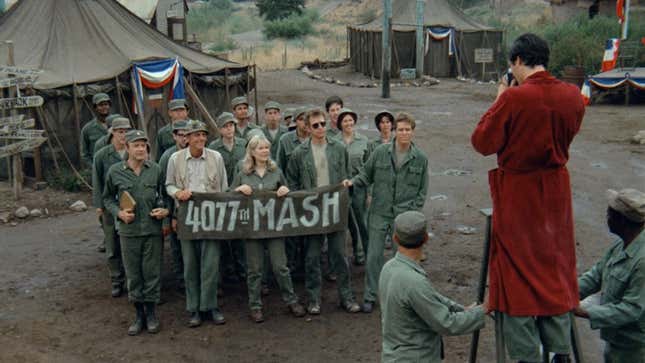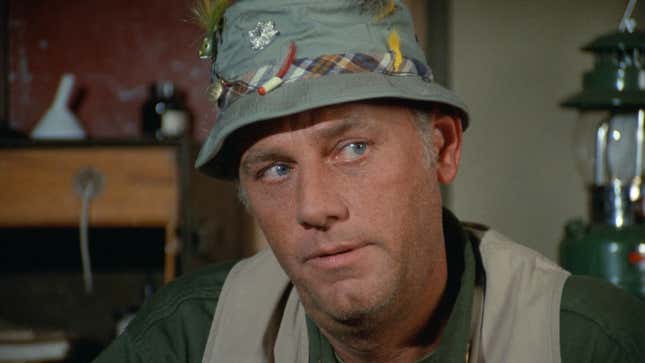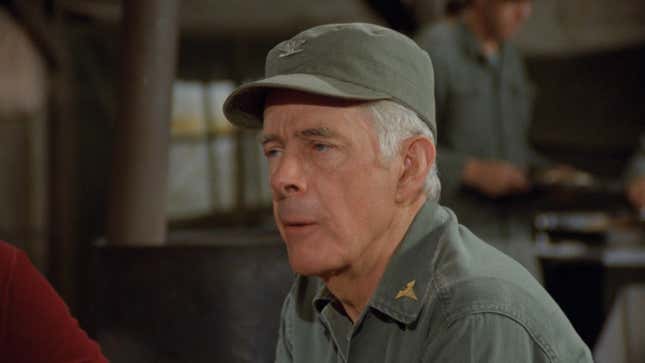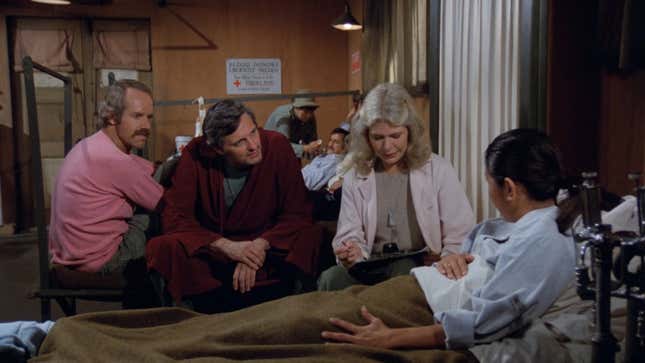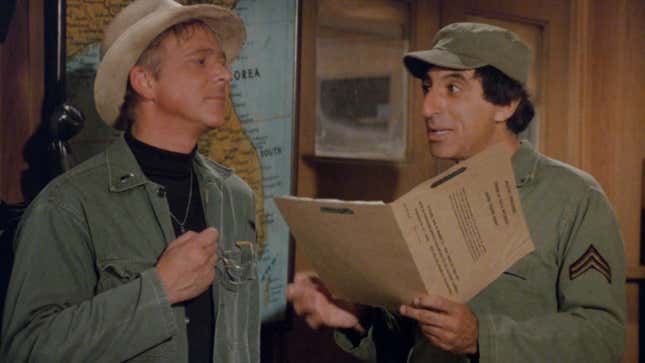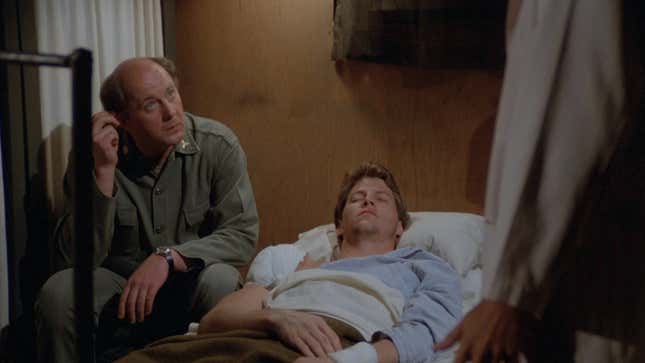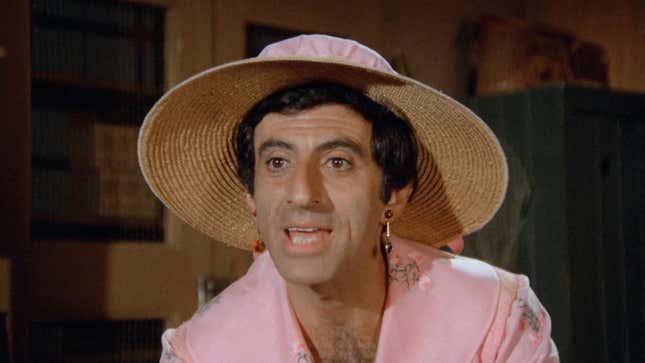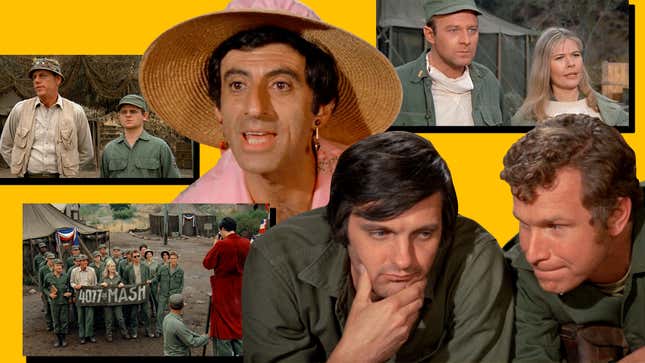
The great American sitcom to end all sitcoms, CBS’ 11-season-long wartime comedy M*A*S*H celebrates its 50th anniversary on September 17. Which is as good a time as any to look back on a show with more than 100 cumulative Emmy nominations, a Peabody Award, and the standing record for most-watched television series finale of all time (a whopping 105.9 million viewers).
And there’s still plenty to unpack. From its progressive attitudes towards gender identity and queerness to its discussions surrounding depression, PTSD, and trauma, the once-humble sitcom transcended the boundaries of genre and format to evolve into an unlikely outlet for cultural conversations. But even when it was thought-provoking or heartbreaking, M*A*S*H still managed to remain accessible enough to beckon millions to tune in for a half hour of laughs every Monday night. A lot of that came from the writing (which was increasingly influenced by Alan Alda and other cast members as the show progressed), but it’s undeniable that the series owes plenty of its success to the all-star ensemble cast that brought the 4077th to life each week.
So, in honor of the outstanding talent among M*A*S*H’s 11 series regulars, let’s mark the show’s 50th with a look at each character’s strongest episode.
